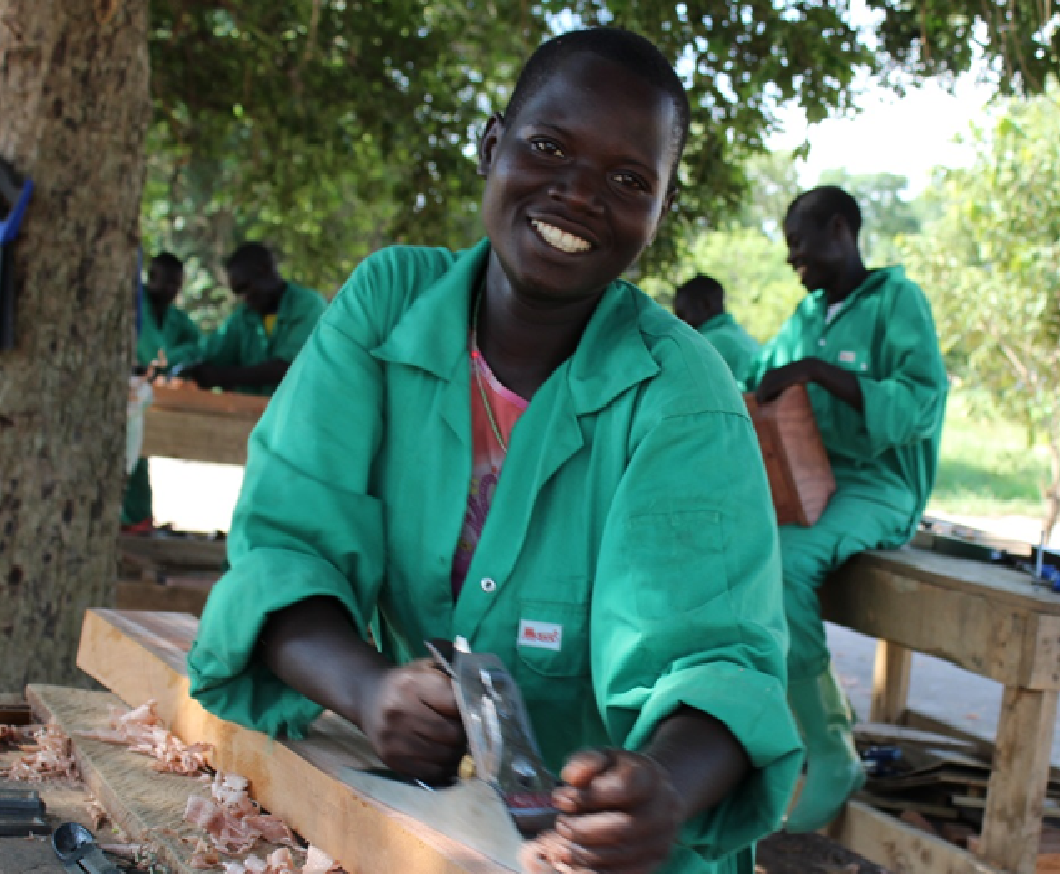European Union Trust Fund (EUTF) - Support Programme for Refugee settlements in Northern Uganda (SPRS-NU) Livelihood and Labor Market Relevant Skills Development for Refugees & Host Communities
EUTF SPRS-NU
Oeganda

| Gefinancierd door | European Union |
| Fase | Afgesloten |
| Sector | 15190 Facilitation of orderly, safe, regular and responsible migration and mobility |
| Startdatum | 1 augustus 2016 |
| Einddatum | 1 december 2024 |
| Budget | 7 383 238.00 € |
| Code | UGA160321T |
| Afgekorte naam | EUTF SPRS-NU |
Projectbeschrijving
The EUTF SPRS-NU project, European Union Trust Fund (EUTF) - Support Programme for Refugee settlements in Northern Uganda (SPRS-NU) Livelihood and Labor Market Relevant Skills Development for Refugees & Host Communities (EUTF SPRS-NUTo) aims to sustainably improve food security, nutrition, and livelihoods of the refugee population.
The project is carried out under the European Union Emergency Trust Fund for Africa, focussing on access to skills development and entrepreneurship guidance and services for youth, women, and girls (refugees and host communities) in three districts in North-Western Uganda.
As the absence of vocational skills form a major barrier for personal development and increased livelihoods, and as formal employment is in the given region often scarce, the project provides the necessary funding and expertise for skills training and entrepreneurial know-how for the targeted beneficiaries.
The project therefore focuses on 2 specific results, being: (Result 1) Increased access to quality skills development (training, entrepreneurial skills and start-up kits) for refugees and host communities (with a specific focus on youth, women and girls) in the three targeted areas ; (Result 2) Skills development in the three districts is coordinated and aligned with the Skilling Uganda strategy.
The two results combined will strengthen youth, women, and girls from the host communities and refugee communities to acquire skills necessary to improve their standard of living, and find or create a job. Thanks to result 2, this will happen in a more coordinated and aligned manner, allowing a proper certification of acquired skills, a national accreditation of skills development programmes and an improved integration of skills development activities in the refugee coordination structures. This should reduce tensions between populations (being the second result of the programme), and should also lead to a lesser ratio of the population solely living from (subsistence) agriculture.
Nieuws
Er is op dit moment geen nieuws. Blijf op de hoogte van onze komende updates.
Links
- Geen links
Documenten
- Geen documenten
